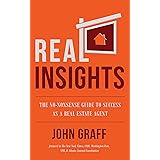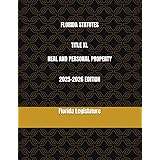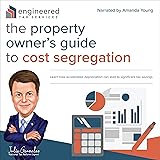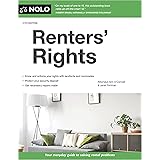Building wealth often feels like a complex puzzle. Many people dream of financial independence. Real estate investing offers a powerful path. It can create significant wealth over time. The journey to buying your first rental property can seem daunting. This guide will simplify the process. It will help you navigate each crucial step. We’ll expand on the valuable insights from the video above.
Real estate investors gain powerful tax advantages. These benefits can boost your financial growth. Starting out requires a clear roadmap. Karlton Dennis, a successful investor, shares his wisdom. He highlights the path to securing your first investment property. We’ll explore these steps in detail. This will prepare you for 2025 and beyond.
Preparing Your Down Payment Funds
The first step involves financial preparation. You need funds for a down payment. Most lenders require a significant amount. Expect to put down 15% to 20% for an investment property. This can range from $15,000 to over $100,000. Real estate investing requires initial capital. It’s like having fuel for a long journey. Ensure your savings are robust before you begin.
There are creative financing options. An FHA loan is one such alternative. It allows for a lower down payment. You might only need 3.5% down. This route has a key condition. You must live in the property for at least one year. Many aspiring investors use this strategy. They buy a multi-family home. They live in one unit and rent out others. After a year, they move out. Then they rent all units for cash flow. Remember, FHA loans also include mortgage insurance. This adds to your total costs.
Building a Strong Credit Score
Your credit score is vitally important. It acts as your financial reputation. A higher score means lower interest rates. Lower rates reduce your monthly payments. This leaves more money in your pocket. More cash flow supports wealth building. Aim for a score above 700. Ideally, reach over 730 if possible.
Fix any credit issues early. Address them before applying for a mortgage. Improve your score with simple actions. Use less of your available credit. Pay all your bills on time. Check your credit report regularly. Resolve any errors immediately. A strong credit score is your foundation. It smooths the path to a great mortgage.
Speaking with Lenders: The Initial Reconnaissance
This is a crucial early step. You need to understand your borrowing power. Talk to lenders without applying for a loan. This avoids a “hard inquiry” on your credit. A hard inquiry can temporarily lower your score. Your goal is to get an estimate. Ask about the mortgage amount you could qualify for. Provide details about your income and credit score.
Lenders will ask about your job history. They might inquire about your business. Be ready to share tax return information. This preliminary discussion is invaluable. It helps you grasp your financial limits. You will then know what types of properties are within reach. Do not skip this important conversation.
Choosing the Right Property Type
Many property types exist for investors. You can choose a single-family home. Duplexes offer two units. Triplexes have three doors. Fourplexes feature four units. Condos and apartments are also options. Your budget is the primary consideration. Larger properties generally cost more. Start small if funds are limited. A duplex or single-family home is often a good beginning point.
Consider avoiding condos initially. They often come with high HOA fees. These fees can erode your profits. Condos also have strict rules. Renovation options might be limited. This can hinder your ability to improve rents. Always consult local real estate agents. They know the market well. They can guide you to properties with the best value.
Initial Property Research: Finding Your Gem
Once you are financially ready, research begins. This step can feel intimidating. Many fear making expensive mistakes. Ensure you complete the earlier steps first. This preparation builds your confidence. It helps you make informed decisions.
Prioritize Cash Flow Positive Properties
Focus on properties that generate positive cash flow. This means rental income exceeds all expenses. For example, if rent is $3,000 per month. Expenses include mortgage, taxes, and insurance. If expenses total $2,500, your cash flow is $500. This $500 is your monthly profit. Positive cash flow provides financial stability. It makes the investment more manageable. You also build equity and gain appreciation. But positive cash flow offers immediate benefits. It is like a stable stream of income.
Leverage Online Tools for Due Diligence
Utilize online platforms for research. Websites like Zillow, Redfin, and Trulia are helpful. They provide rental income estimates. Many online mortgage calculators exist. These tools help estimate monthly expenses. You can project a property’s cash flow. This analytical work requires effort. It helps identify promising opportunities.
Strategic Property Selection: Beyond the Basics
New investors should avoid major remodels. Cosmetic issues are usually fine. New carpets or fresh paint are minor fixes. Major renovations are costly. A new roof or HVAC system is expensive. These projects require significant time and money. New investors often underestimate these demands. Stick to properties in good condition. Look for safe neighborhoods. Desirable features attract quality renters. Good schools, parks, and job markets are important. Focus on areas where you would want to live yourself.
Getting Lender Pre-Approval: Your Buying Power
After initial research, seek pre-approval. This is different from your first lender discussion. A pre-approval involves a “hard inquiry.” The lender will thoroughly review your finances. They assess income and debt-to-income ratio. Employment history and assets are checked. Cash reserves are also evaluated. They consider the potential rental income. Pre-approval gives you a strong offer letter. This shows sellers you are a serious buyer. It is like having a verified ticket to buy.
Selecting a Property and Making Your Offer
With pre-approval, you can make offers. Pinpoint properties matching your budget and goals. A great real estate agent is invaluable. They guide you through this process. Agents know the best deals. They have crucial market insights. Ask for references or read online reviews. Meeting agents at local events also helps. Choosing an agent is like dating. You need a good fit. A good agent becomes a long-term partner.
Your offer must include contingencies. Inspections are a key contingency. This protects you from hidden problems. Unexpected issues can be costly. Contingencies allow you to back out. They also provide negotiation leverage. Do not skip this critical step.
The Critical Inspection Phase
Once your offer is accepted, the property is “under contract.” This is when inspections happen. Inspectors look for unseen damage. They check for water issues or foundation cracks. These could cost a fortune to fix. Most properties have some minor issues. This happened with Karlton Dennis’s first property. He found a roof issue. Get repair cost estimates for all problems.
You can negotiate with the seller. Ask them to reduce the price. This accounts for necessary repairs. Many sellers agree to this. They prefer a reduced price over a lost deal. If issues are severe, and the seller won’t budge. You may need to walk away. It is better to find another property. Think of the inspection as a property’s health check-up.
Closing Escrow: The Final Frontier
Closing escrow is the final stage. This process is involved. It is not always simple. Be prepared for paperwork and fees. You will sign many documents. These include the property deed and transfer forms. Funds for the purchase must be available. You will also pay closing costs. These cover lender fees and escrow fees. Attorney fees might also apply. Once this is complete, the property is yours. You can then begin renovations if needed. You can start renting it out. This begins your rental income stream. You can also capitalize on tax benefits. Owning a rental property is now a reality.
Creative Financing Options for Rental Properties
What if your credit isn’t perfect? You still have options. Hard money lenders provide loans. Their terms might be less favorable. They are more flexible with credit scores. Private money or private equity lenders are another choice. Many experienced investors use this route. They bypass traditional banks. Lastly, you could buy with cash. It is very challenging to get a loan with bad credit. This highlights the importance of good credit. Repairing your credit before lending is key. It ensures a smoother, more affordable process for your first rental property.









